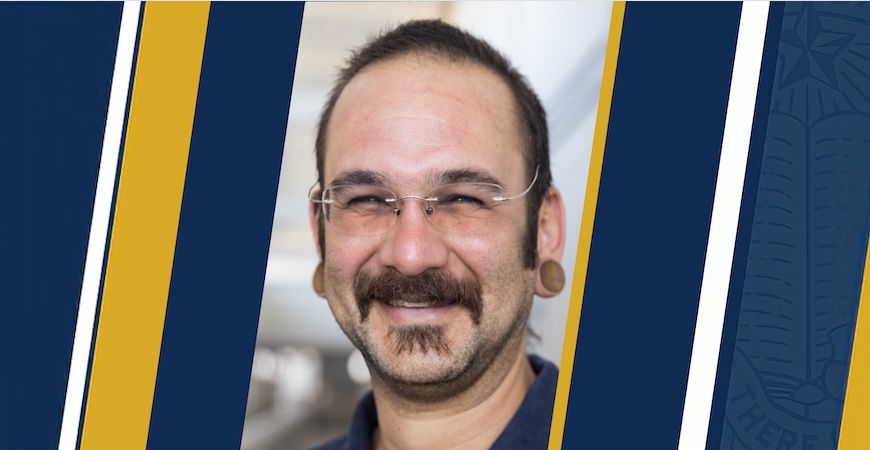
Understanding how bacteria and other organisms stick to surfaces in wet environments could help develop better products ranging from medical adhesives to specialized boat paint.
UC Merced chemical and materials engineering Professor Roberto Andresen Eguiluz has been awarded $168,700 from the Defense Advanced Research Projects Agency, the central research and development organization of the Department of Defense, to advance his work in this area.
Andresen Eguiluz said the award will support research into molecular mechanisms of wet adhesion in his lab, directly supporting one postdoctoral researcher for one year.
He said he hopes to uncover the molecular synergies bacteria use to grow in wet environments. His approach will integrate biological, chemical, mechanical, and physical approaches and measure adhesion energies at the molecular level using specialized tools, such as the Surface Forces Apparatus.
Most wet adhesion studies have been based on the foot proteins of marine mussels. Because the researchers’ work will be based on principles of physical chemistry, the strategies and tools they develop can be broadly applied to other organisms, such as snails, which also use mucus to stick to surfaces.
The researchers will examine how well molecules interact with surfaces and what kind of organisms make the best adhesive, and under what conditions. Prior work has shown that environment, crowding, and confinement can also affect adhesion performance.






